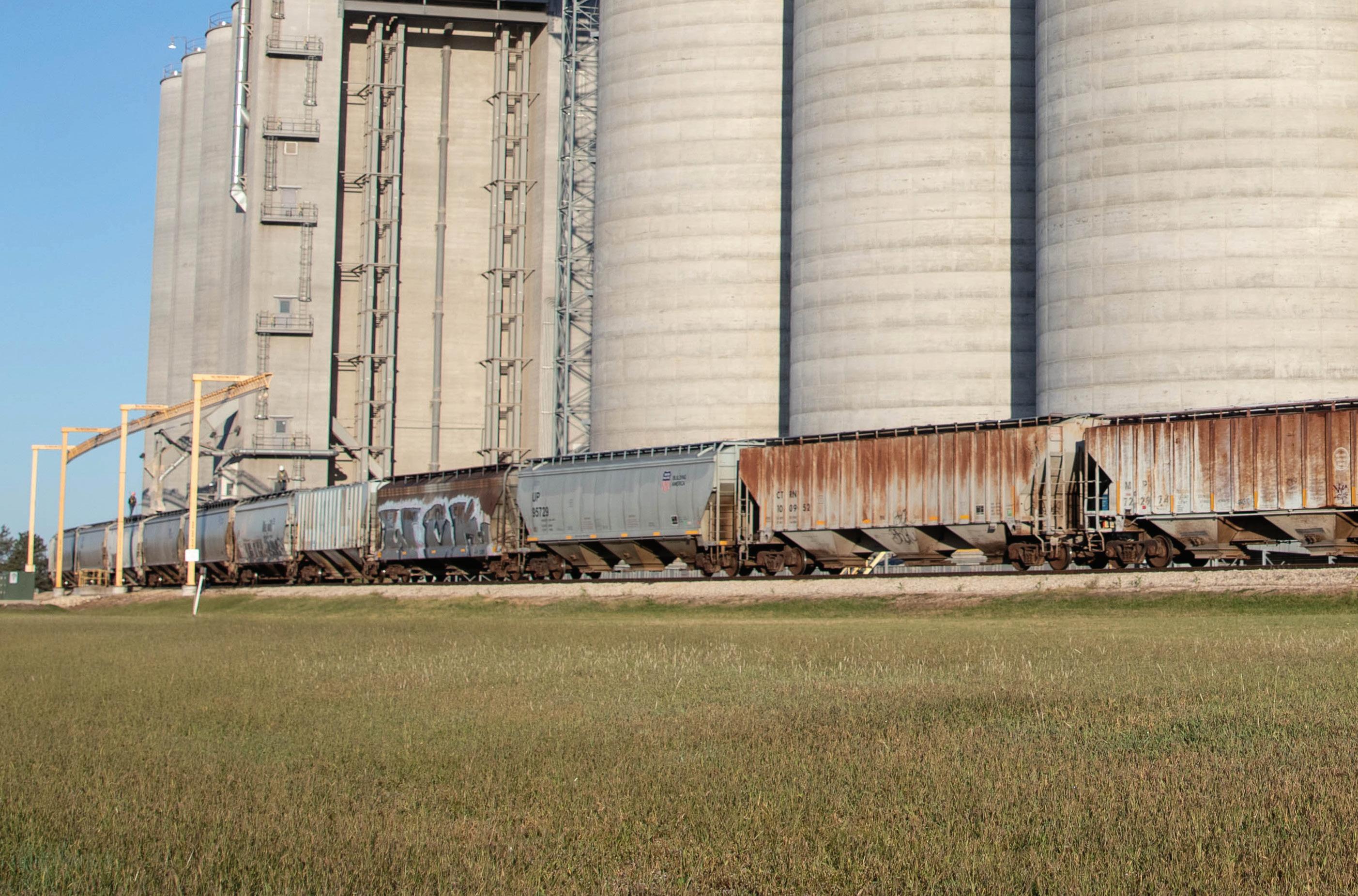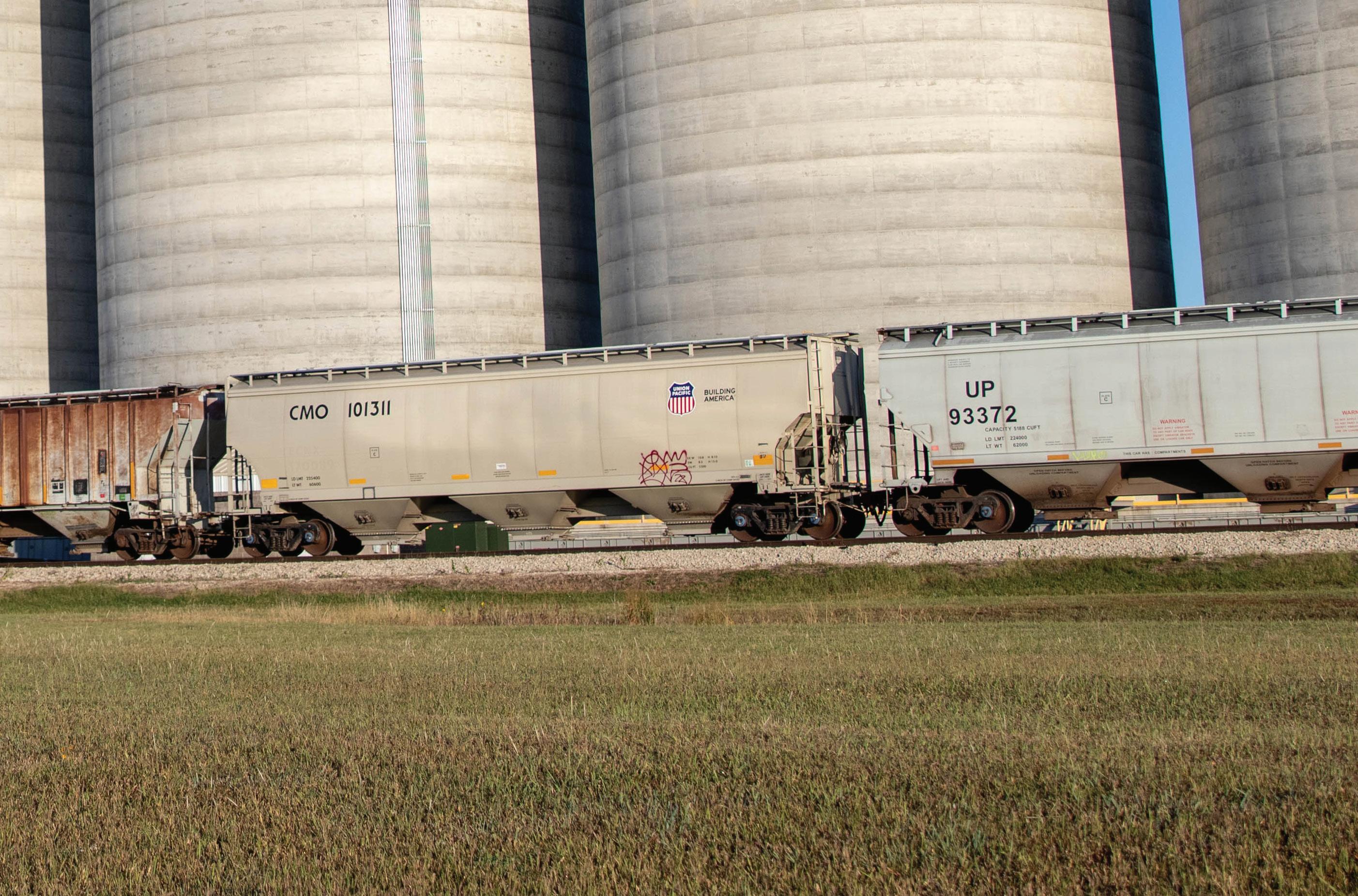
3 minute read
Bushels of Success by Rail
BY: NICHOLE GOULDIE, MKC COMMUNICATIONS AND BRAND MANAGER
Grain tumbles from the hopper of a farmer’s truck at the elevator pit, about to begin a journey to its next destination somewhere in the world. But what does that journey look like for local grain? For many years, bushels brought to the cooperative only had one choice to get closer to the end-user, and that was by truck. Today, MKC and Team Marketing Alliance, LLC. offer additional options for that journey, creating more success for the cooperative to pass through to its member-owners.
Advertisement
“We used to have to sell our member-owner’s grain to other companies who would then ship it to the ultimate end user,” says Danny Posch, MKC executive vice president and CFO. “Now we can sell the cooperatively-owned grain to traditional markets or new markets by rail. If the market wants it to stay home, we can now get the same price we would by shipping it out, which we never had that leverage before.”
ABOUT THE SHUTTLE LOADERS
When management brought a proposal for building a grain shuttle loader to the MKC Board of Directors, Posch said heads turned, but rightfully so. Through
all of the business planning, management shared with the Board that MKC may never ship a bushel of grain out of it by rail. “That caused many questions, go figure,” Posch says. “But the fact is, once you have a train loader, you have choices which we never did before.”
The construction of a highspeed rail loader proved to be a good one. Today, two facilities operate as Producer Ag, LLC, a limited liability company owned by CHS and MKC. The LLC is a member of TMA, which handles the grain marketing services.
The first high-speed shuttle loading facility owned through the partnership was built in Canton, Kansas, in December 2014. After multiple phases of construction, the terminal consists of 10 million bushels of storage today and is capable of loading 100-car shuttle trains on the Union Pacific Railway. The Sumner County Terminal was the second facility built by Producer Ag and is located near Milan, Kansas. The Milan location, completed in July 2017, operates on the BNSF Railway and is composed of 7.5 million bushels of storage.
“These two rail terminals have been a part of our continued commitment to meet the needs of producers and to sustain the cooperative model for future generations,” Posch said. “The addition of these spaces and speed has provided access to world markets and brought value to the local producers in the region and has allowed other cooperatives in the area access to markets through a cooperative partner.”
PIECE OF THE PUZZLE
For MKC and TMA, rail transportation is a part of the puzzle to grain marketing success. “Rail transportation is an important piece of the puzzle,” says Lance Adams, TMA grain merchandiser. “Rail creates many efficiencies, including managing costs and moving large volumes of grain in a short amount of time in a marketplace where there are a lot of bushels locally.”
Adams said there is also tremendous value to the shuttle system MKC operates by having access to both the UP and BNSF railways. “It provides arbitrages between grain and we often see massive differences between the lines,” Adams says.
The Producer Ag terminals handle wheat, corn, soybeans,
milo and canola and shipped 33.8 million bushels by rail in 2019. “The percentage of grain shipped by rail is different every year depending on what the market is telling us,” Adams says. Since its opening in 2014, the Canton Terminal has shipped 259 trains. The Sumner County Terminal has fulfilled 43 trains since 2017.
MAKINGS OF SUCCESS
“We often are asked how the terminals are doing,” Posch says. “By virtually any metric, the loaders are doing amazingly well and have put millions upon millions of dollars in our farmer’s pockets even if they haven’t hauled a bushel to the rail terminal.”
Adams noted success at the terminals is evident through the opportunity to pass financial success back to the local cooperative but also through increased negotiating power and the opportunity to blend grain to sell desired proteins at the right time to end-users. “Through a strategic focus of managing quality,
we are moving less grain at an increased value,” Adams says.
“Through this partnership, the grain business at MKC and TMA has evolved from being a trucking facility to be a big player with more volume, more speed and more market access all to benefit our member-owners,” Posch says. “As a cooperative member, you can be proud that we built the only cooperatively-owned train loader in our footprint.”









